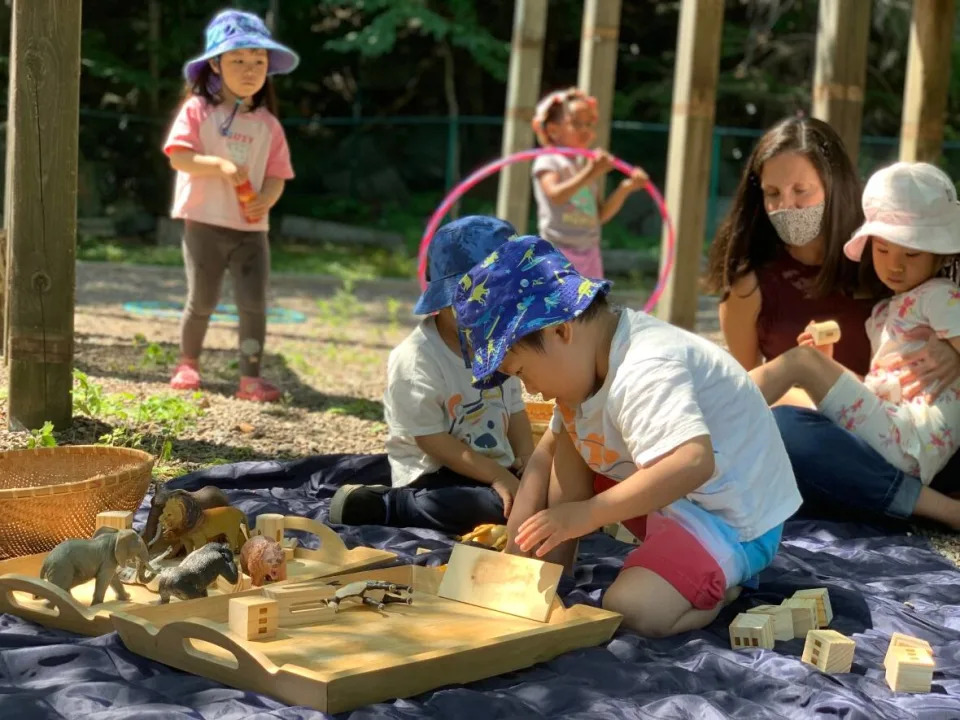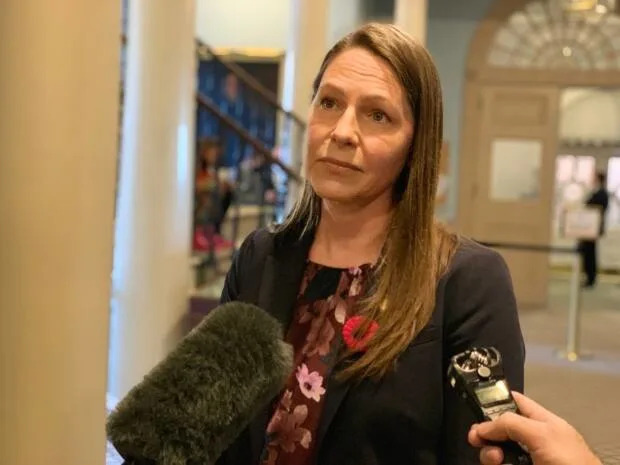NOVA SCOTIA
Child-care funding aims to expand infant spaces, boost wagesFri, February 17, 2023

Children play at a child-care centre at Mount Saint Vincent University in Halifax in this file photo from 2021. (Michael Gorman/CBC - image credit)
Nova Scotia's education minister announced $12 million in funding for the child-care sector on Friday, including money aimed at expanding the number of spaces for infants, further boosts to wages and help with inflation.
The money comes from the federal-provincial affordable child-care agreement, a $600-million deal intended to create $10 per day child care across the province by 2026.
The sector is going through "a huge and ongoing transformation" and Friday's announcement is meant to help, Education Minister Becky Druhan said in an interview.
Along with doubling the daily funding centres receive for infant spaces, the new money also includes a $1.50 hourly premium for early childhood educators who have additional certification.
"That will help recognize specialization in the field and help with retention," said Druhan.
Operating costs going up
Following the announcement last fall of a major wage increase for early childhood educators, there will be another three per cent increase across the board. That's in keeping with a recent raise for members of the public service.
The package Druhan announced in October tied future increases to those received by members of the public service.

Michael Gorman
Centres will get funding to cover the increases to minimum wage this year for entry level and untrained staff. All centres, family home providers and the Nova Scotia Before and After Program will get one-time grants to help with increased operational costs.
The grants are calculated based on a site's size and parent fees.
Helen Gamble, the owner and director of Health Park Early Learning Centre in Sydney, said the added money comes at a good time.
"Oil has gone up, food has gone up," she said.
"Electricity is going up, so it is just going to be … a help."
'A show of good faith'
Gamble, who is a member of an engagement group that communicates with the department, said there was hope among the sector that the help with increased costs would be more than a one-time grant. However, Gamble believes long-term sustainability could be addressed in the future through a new funding model.
Nova Scotia funded 1,145 child-care spaces for infants as of last October. Druhan said it's too soon to know how many more spaces will be created as a result of Friday's announcement, but Gamble said she thinks the money will be an incentive for sites to create more spaces.
"It's more costly than having any other age group, so I think it will make people think, 'We can do this with the support of the government.'"
There has been acrimony between the department and some operators as the transition process has played out, but Gamble said she believes the government has been listening in the last year.
"I think that it's definitely a show of good faith that they are trying to build a trusting relationship with the sector. I do think that this is a positive step."
Still, there's work to do, she said. There remains a "vast" shortage of early childhood educators, something Gamble said could affect the department's goal of continuing to add spaces to the sector.
"Although they are being trained, it's not keeping up with the demand."
No comments:
Post a Comment